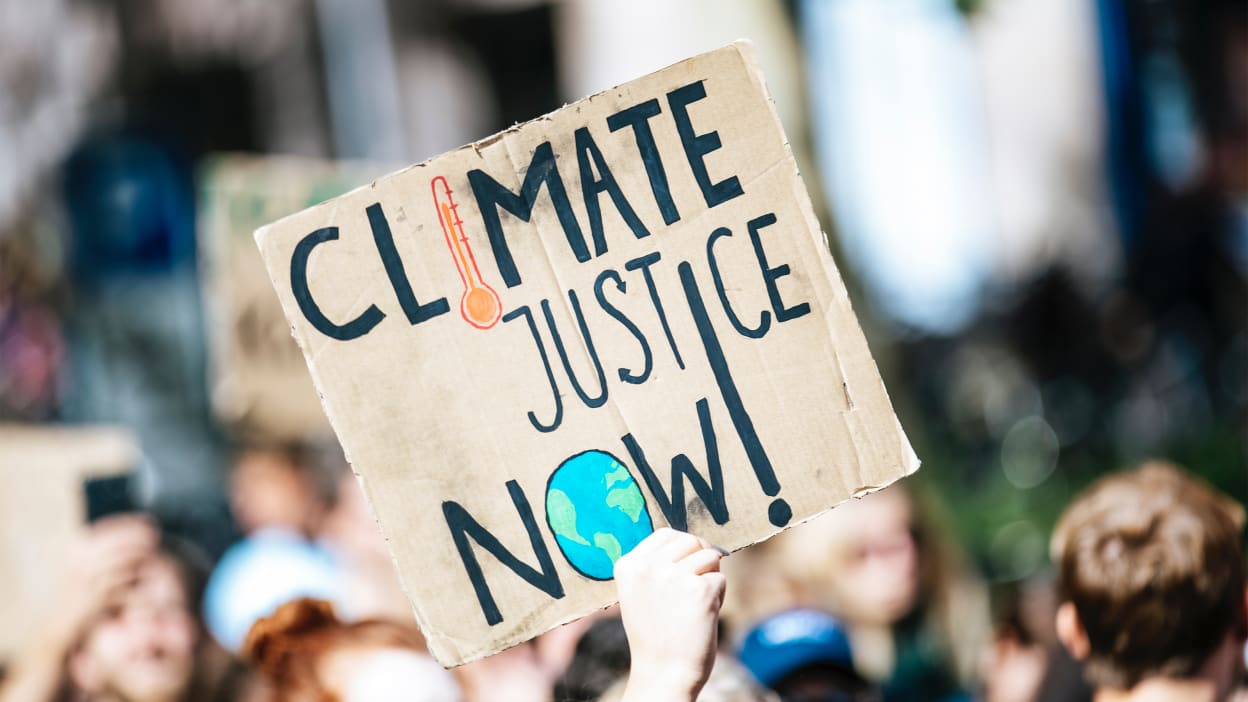It seems as though there are more people calling for urgent climate change solutions every day. What does this have to do with Christian faith? And why should Christians get involved with campaigning for change?
Should Christians speak up on climate change?
The climate crisis is an injustice that's causing harm to people; love means taking action to set things right.
Kiran Rai | 02 Sep 2021



A good place to start is Jesus’ command to ‘love your neighbour as yourself’ (Mark 12:31). This isn’t just referring to the person who lives next door – it means neighbours in our community, our country and around the world. When Jesus is challenged to define who ‘our neighbour’ is, he tells a parable that calls us to love anyone who is in need (Luke 10:25–37)
Love for our global neighbours can take many different forms. It can mean anything from providing help during an emergency to empowering communities to build for their future. And when issues of injustice are causing harm to people, love means taking action to set things right. To address root causes, this must mean taking on big challenges such as changing systems, laws and attitudes.
‘There comes a point where we need to stop just pulling people out of the river. We need to go upstream and find out why they’re falling in,’ said Archbishop Desmond Tutu.
That’s what advocacy is all about: influencing people and public policies to bring about change. It involves influencing those in power to act more fairly, uphold justice and address the root causes of poverty.
Speaking up out of love
Proverbs 31:8–9 says: ‘Speak up for those who cannot speak for themselves, for the rights of all who are destitute. Speak up and judge fairly; defend the rights of the poor and needy.’
A similar instruction is found in Isaiah 1:17: ‘Learn to do right; seek justice. Defend the oppressed. Take up the cause of the fatherless; plead the case of the widow.’
There is a strong biblical call to stand alongside marginalised or vulnerable people by speaking up against injustice. Jesus got angry when people used their privilege for selfish gain at others’ expense. Whether it was chasing money-changers out of the temple, or publicly pointing out the hypocrisy of religious leaders, he didn’t shy away from challenging the status quo. We can follow in his footsteps by using our voices and choices to tackle injustice.
The climate crisis is unjust
The climate crisis is a justice issue with a huge human cost. It affects all of us – but not equally. It’s people living in poverty who are suffering the most from droughts and floods, facing food shortages and being forced to leave their homes. Unless we act urgently, climate change will push 132 million more people into poverty this decade. We know this is not God’s plan – and that’s why Christians should care about climate change.
It’s well known among climate experts that human activity is making the climate crisis worse: the latest UN climate change report signalled a ‘code red for humanity’. But we don’t have to keep going down this path. By working together and making urgent changes, we have an opportunity to build a different kind of future where everyone can thrive.
When we speak up together, change happens
To tackle something as large as the climate crisis, we must all play our part: governments, businesses, communities and individuals. Sometimes people argue over which part is most important, but in reality, it’s all needed.
We’ve seen, over and over again, that when we raise our voices together, decision-makers take action and situations change for people in poverty. Earlier this year, we saw a big win as the UK Government stopped all taxpayer support for fossil-fuel energy projects overseas, in response to prayer and campaigning.
Could you, your church and your wider community get involved with taking action?
Your voice is needed now
In November, the UK will host the UN climate talks, COP26, in Glasgow. Governments of practically every country will come together to make plans for tackling the climate crisis – and decisions made there will affect us all, now and for generations to come.
One powerful way you can make your voice heard is by letting your local MP know that you want them to take action. No matter what you think of your MP, it’s their job to represent your interests and concerns. You’re not dishonouring or distracting them by speaking up: you’re helping them to do their job better.
By emailing, calling, writing to or meeting up with your MP about the climate crisis, you’re letting them know that you care. It may sound intimidating to speak directly to your MP about a big topic like this, but you don’t need to be an expert or have all the answers – it’s simply about letting them know you want to see urgent action. If you’d like to contact your MP, you can use our editable template to email them directly.
Send your MP an email calling for ambitious action on climate change.
Donate now
Kiran Rai
Similarly Tagged Content
Share this page
Share this page to spread the word and help support those in need.

Get our email updates
Learn about our work and stay in touch with Tearfund. Hear about our news, activities and appeals by email.
Sign up now - Get our email updates






